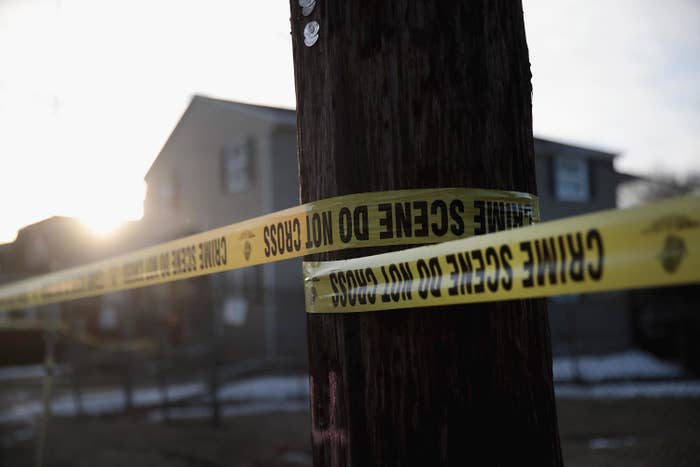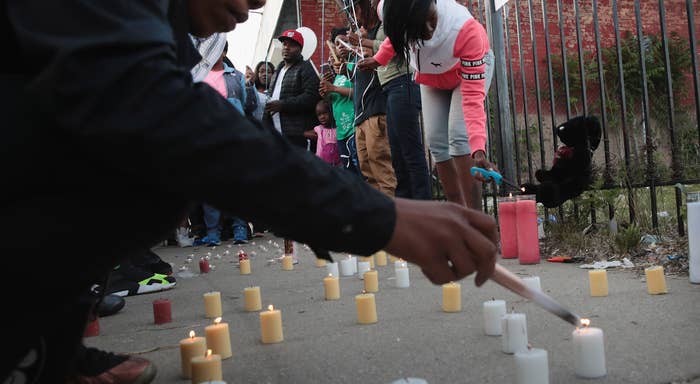
“Jimmy and Steve are dead.”
I’ll never forget the sound of my grandmother’s voice on my voicemail. I’ll never forget the look on my little brother’s face as we arrived at the scene of their murders. I’ll never forget the heat of the sun on my scalp as I stood outside for hours while they collected evidence and covered our loved ones with white sheets.
At the last count, there have been close to two dozen people under the age of 20 killed within the St. Louis area this summer. Many cases have gone unsolved. Media attention has been brief and feels heartless. Each year since 2014, St. Louis has had the highest number of murders per capita of any big city in the United States.
This issue is very personal to me because five summers ago, on Sept. 5, 2014, two of my uncles, then aged 24 and 31, were shot and killed in this city, which I’ve called home for my entire life. At an earlier point in his life, Jimmy had been incarcerated in the Medium Security Institution, also known as the Workhouse. An altercation that began there literally and figuratively bled over into our neighborhood.
Jimmy and Steve were shot as they were getting off the bus at the corner of Goodfellow Blvd. and Julian Ave. after working an overnight shift. This bus stop is the same one Steve and I used to stand on to go to school or the mall. This corner was just a block from my grandmother’s house.
What happens when the street you live on is the street where your kin took their last breath?
This is the reality for far too many St. Louisans, and black St. Louisans in particular. St. Louis has a long history of gun violence, and it looms over our community like a cloud. We are a region marred by systemic racism, deep race and class divides, poor public education, and lackluster (to be kind) leadership. This plague requires no more research, surveys, or planning. This moment requires urgency, action, investment, and divestment from our current system.
One result of gun violence that never receives enough attention is the intergenerational impact of gun deaths on families. When my uncles were killed, their parents — my grandparents — underwent tremendous mental, and even physical, ailments. I’ve watched my grandpa, the strongest man I’ve ever known, go from a spry, relatively healthy sixtysomething to being severely ill and unable to care for himself. I’ve watched my granny, the woman I’ve modeled my life after, become so full of angst and anxiety that she now has chest pains and bouts of blurred vision so strong she has to pull over if she’s driving. While it’s not possible to determine exactly whether the murders of Jimmy and Steve are the cause of their ailments, I do know that day changed everything. Jimmy also left behind two children, who have undoubtedly suffered from the loss of their father.
I wonder how this experience will impact how I parent my own future children. Will I hold my babies too tightly? Will they forever feel chained to me because I’m afraid to let them go too far? This is an intergenerational trauma that has deep and far-reaching roots within our families.

Each and every time I read or hear about another death from gun violence, it’s impossible for me not to think about the families of the victims, and the countless other people who loved them who are embarking on the same journey that my family has undergone over the last five years. I know there’s nothing that can ever be said to ease this type of hurt. I know that nothing will be the same again.
We have so much work to do, and we are doing it while carrying the kind of pain that doesn’t go away. I’m weary of relying on universities and governments to tell us what to do. They have been repeatedly complicit by giving in to the National Rifle Association (and to the police state), and by acting to perpetuate a cycle of incarceration, death, and punishment.
I’m ready to listen instead to the black women who’ve lost their children and seek ideas on solutions from those who feel the pain the most. I don’t think this toxic system can ever stop the spread of the disease of gun violence or properly honor the young lives lost — we’ll need to rebuild better systems from the ground up.
Jimmy, Steve, and an alarming number of others will need to be remembered by all of us. The next generation must reimagine a future for themselves that exists outside the systems that watched them die as though that was their natural fate. My uncles had reason to live — they deserved to live as much as any of us. Their mother, my granny, will never stop crying. It’s time we listen to and honor her tears.
Karissa Anderson is an advocate and organizer and serves as a member of the Generation Progress #Fight4AFuture Network.
